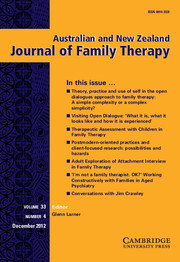Article contents
The Clinician's Voice and the Limits of Bioethics
Published online by Cambridge University Press: 21 February 2012
Abstract
The bioethics movement has long promulgated a model of ‘principled decision-making’ in which ethical dilemmas and conflicts between various rights, interests, and ethical principles are central. In many respects this movement has had a laudatory impact on health care and on health professionals, but we will also argue that the bioethical model of ethical analysis has important limitations. The model's theoretical orientation is discontinuous with the training and skills of health professionals, the manner in which health professionals conceptualise and solve problems that arise in a clinical setting, and the time constraints inherent in most clinical situations. As such, the model is not readily applicable to much of the day-to-day work of clinicians and, in particular, to the routine ethical questions and situations that arise in caring for patients. What we suggest is that the bioethical model does not take into account that health care professionals, as part of their daily work, encounter and manage difficult, often conflictual situations and that they do so by bringing to bear conceptual frameworks and therapeutic techniques that have, embedded within them, the ethical values and goals of their own fields, as well as established ways of dealing with problems and addressing competing priorities. We further argue that from a systems perspective, the bioethical model and the pragmatic, problem-focused ethical decision-making of clinicians operate on different levels of complexity; whereas the former is especially appropriate for situations that resist consensus or that raise significant issues of public policy, the latter serves as an effective framework in less difficult or complex situations that can be moved effectively toward consensus and closure.
- Type
- Articles
- Information
- Australian and New Zealand Journal of Family Therapy , Volume 32 , Issue 1 , 01 March 2011 , pp. 15 - 32
- Copyright
- Copyright © Cambridge University Press 2011
- 11
- Cited by


